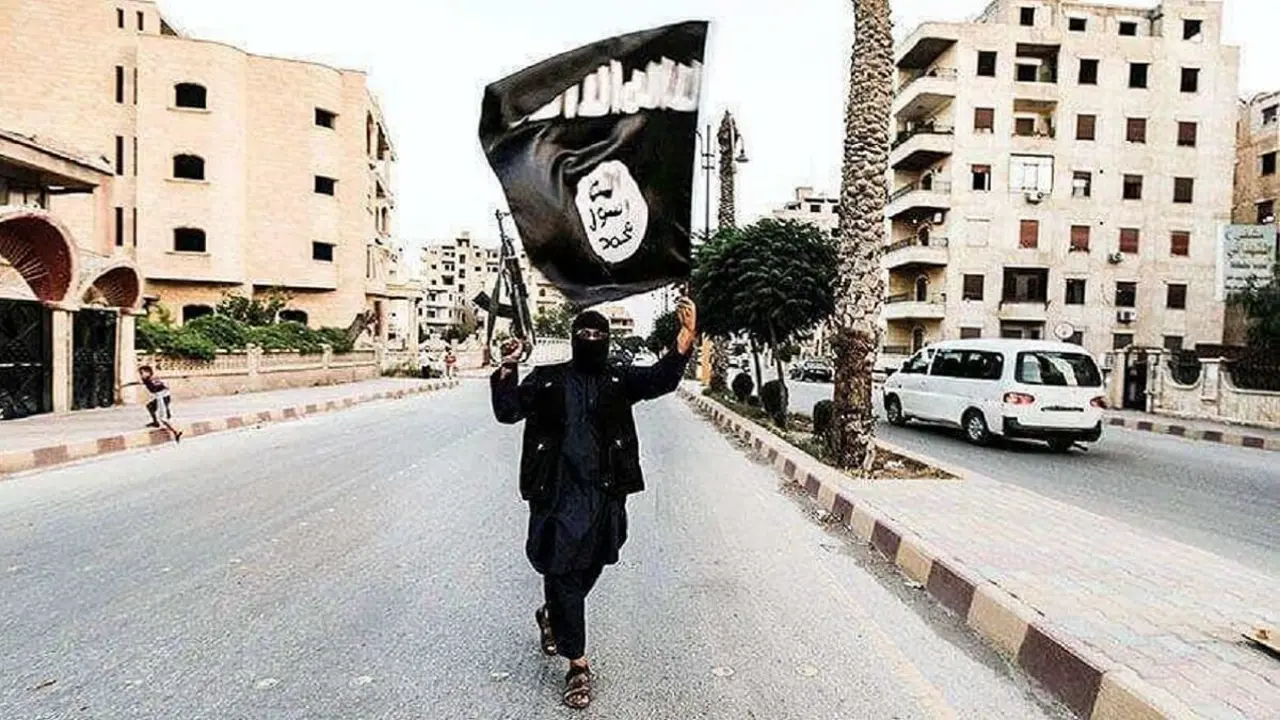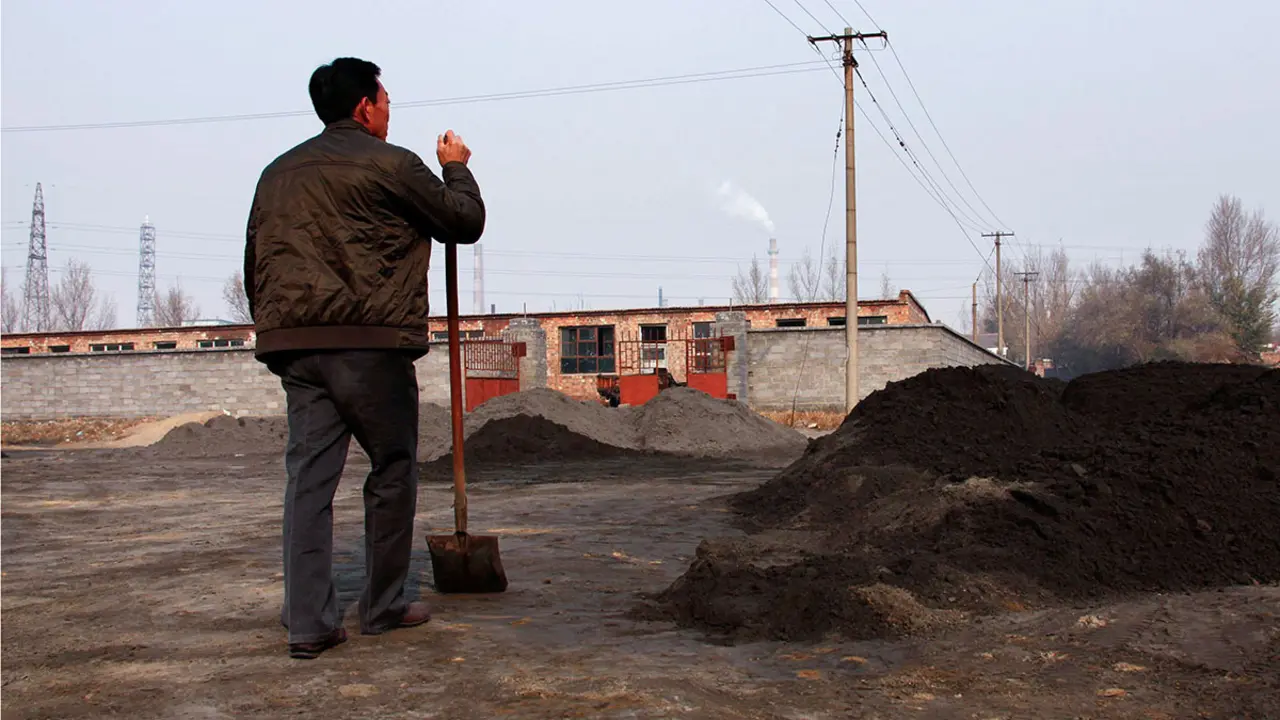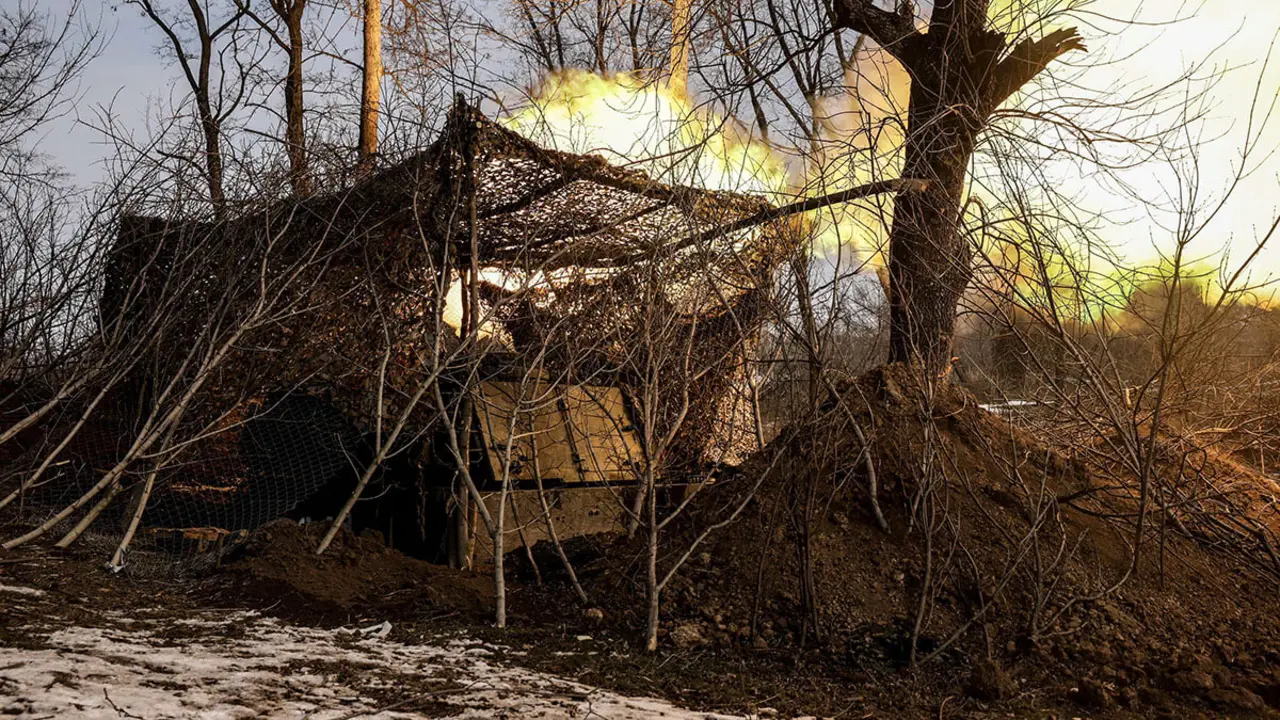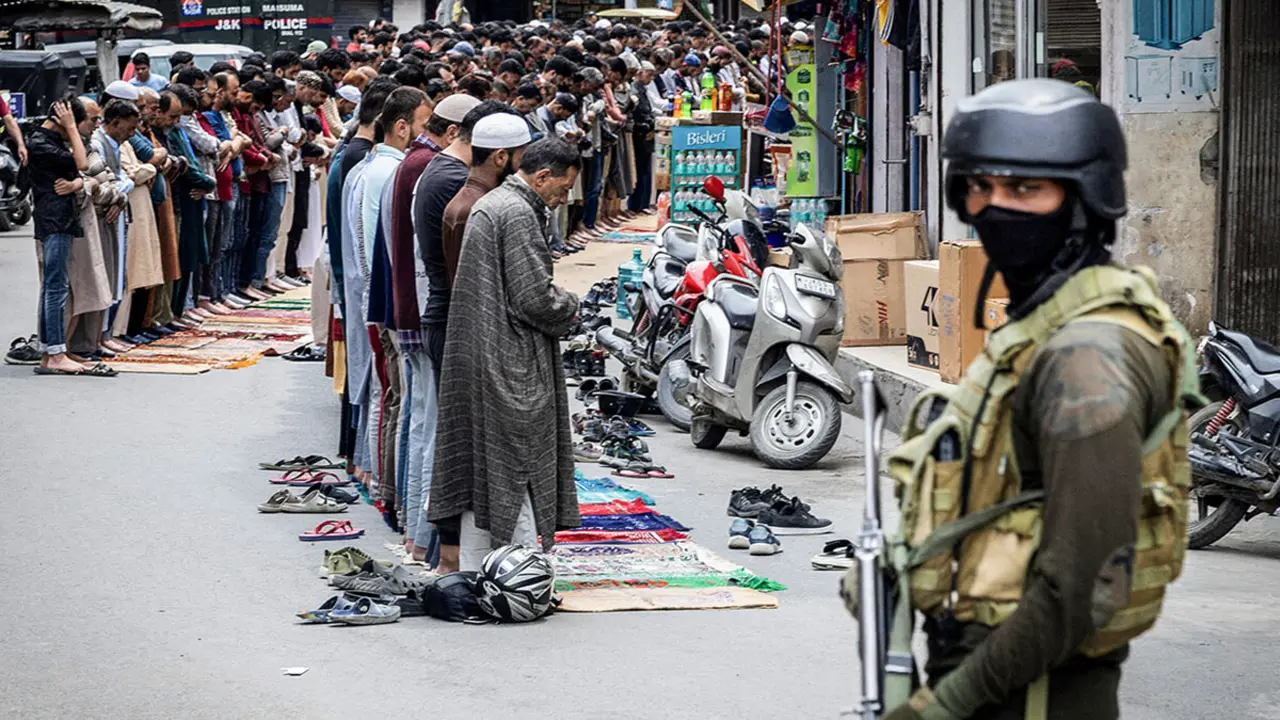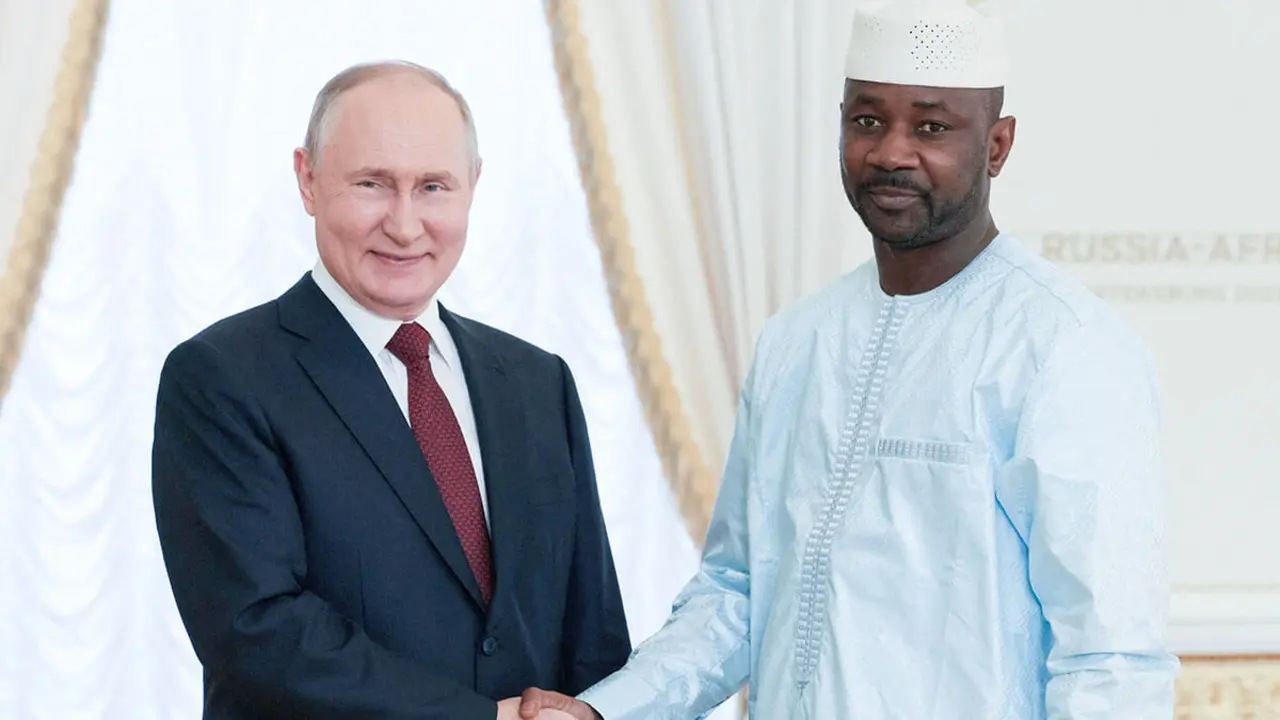(Re)building Ukrainian culture in the middle of the war

The Korolenko Scientific Library is one of the largest and oldest book collections in Ukraine and Europe. It was opened in 1899, destroyed during World War II and rebuilt in the 1950s. In the 1970s it was expanded. But last March, Russian bombing once again shook its foundations - the concrete ones, as well as the cultural ones.
This is one of 77 libraries in Ukraine named after Russian personalities who excelled in the arts, science or literature. It is logical that a country that shares origins with Russia - the East Slavic state of Kievan Rus' - should have Russian references intertwined with its own. It was also to be expected that, during the seven decades that Ukraine was part of the USSR, the presence of Russian culture on this side of the border would be normalised.
But the unjustified large-scale invasion launched by the Kremlin on 24 February, and the nine months of siege and bombardment that the civilian population has endured, have put the spotlight on the presence of these references of Russian origin in Ukraine's public spaces. Even more so when many of these places have been the target of Kremlin projectiles.
In the city of Kharkiv alone, Russia has bombed 200 cultural buildings - 500 in the whole province - including museums, theatres, high schools, universities and also libraries, such as the one named after Russian novelist and journalist Vladimir Galaktionovich Korolenko.

The Ukrainian Ministry of Culture has assured that all cultural buildings that can be repaired - many others await demolition - will be restored after the war. But by then there may be nothing left to salvage if the buildings are not insulated now from rain, frost and snow.
This is the case of the Korolenko Scientific Library, which is not only one of the oldest in the country, but also the second largest in Ukraine - second only to the National Library in Kiev. Before the war, it received more than 60,000 visitors a year, mostly scientists and researchers, and hosted countless cultural events.
The main building was reconstructed according to the original design of the Ukrainian architect Beketov, and among its 13 reading rooms was the Great Hall. With seating for 300 people, ornate stucco and chandeliers adorning the ceilings, and an imposing original Schröder piano that "we are not sure in what year and how it got here," Natalia Petrenko, the library's director, tells Atalayar.
Natalia describes the brightness and bearing of the events in the Great Hall as she shows it to us. But the truth is that now the only thing that stands out is the blanket of white dust that covers everything after a bombing, the planks that cover the huge windows blown out by the bombs and the bruises on the 1915 Schröder piano, which is also in need of repair.

It was during the March bombings that the Korolenko Library was damaged. Three successive attacks pulverised the glass in all the doors and windows of the main building. Several ceilings were also blown off and the impressive stained glass window in the atrium was shattered. Director Petrenko almost holds back tears as she passes under what is left of it. But that is not her biggest worry.
Neither the Great Hall, nor the Schröder piano, nor even the stained glass window in the atrium are the real jewels of this library. The real jewel is the 12-storey high chamber, spread over 24 levels, where the 7,206,942 books - written in 244 languages - that make up the collection are kept.
"We pay a lot of attention to preservation, restoration and digitisation of documents of scientific and historical value," explains Natalia, without taking off her coat during the visit. With snow covering the streets of Kharkiv, the damp and cold are already seeping through the cracks between the planks that have been used to cover the doors and windows. The warehouse is a refrigerator.
Here there are more than 70,000 books of international interest, 25,000 catalogued as "rare", and several manuscripts in Cyrillic dating back to the 14th century. And their integrity hangs in the balance heading into winter. "We need 128 million grivnas to repair all the windows, roofs and doors before the extreme temperatures arrive," admits Petrenko.
"We have Old Russian and Old Ukrainian documents, incunabula, palaeotypes, aldines, Elzevirs, early East Slavic prints, other old prints, rare and valuable editions from the 19th to the 21st centuries," she says. Among the Cyrillic manuscripts is the Minea Service parchment, which contains the oldest list of the "Life of Metropolitan Peter" edited by Cyprian in the 1390s. There are also Ukrainian manuscripts of the Ostroh Academy from the early 17th century and Cossack chronicles from the 18th century.

"We can't even open to the public in these conditions, we only open on demand when a member needs to collect documents. The rest of the time, we try to attend online," explains the director.
"In the interests of security, a number of measures were implemented from the first days of the war: the heating, air conditioning and ventilation in the bookshops were turned off," she continues, "the result is that now we cannot provide optimal conditions for the storage of the collections. The temperature, the humidity, the light, everything is wrong".
In addition to the visible damage to the building and the cold, there is also the freezing discomfort - also visible at times - of living with the aforementioned Russian references splashed all over the place. From the name of the library to the historical portraits hanging on its walls. And Korolenko's is only one of 13 libraries with Russian names in the city of Kharkiv.
In the capital there are 20 others; in Odessa seven, as in Kramatorch; in the shattered city of Mariupol there were six - probably no longer standing; three in Melitopol and two in Cherniguiv. All in provinces in the eastern part of Ukraine, in Russian-speaking cities that the Kremlin has targeted regardless of their cultural affinity. Or perhaps precisely for that reason.

Natalia Petrenko bids me farewell, wishing me a safe stay in Ukraine, and adds "I hope neither your family nor your country will know war". She has already known two. In 2014 she fled the one in Dombas, where her mother still lives. And in 2022 she has had to deal with Russia's full-scale invasion.
Despite her extensive knowledge of Ukrainian culture, and the various sources from which she draws - including Russian - she does not seem to think that culture can heal open wounds at the moment. The disaffection that Russian attacks on Ukrainian civilian infrastructure are provoking outweighs shared cultural origins.
Putin invaded Ukraine with the cry "let's denazify it", but nine months later all he has achieved is to "de-Russify" a country with which he shared a heritage that had survived the ups and downs of the 20th century, the fall of the Wall, the Orange Revolution, the Maidan revolts and eight years of war in the Dombash. Now, like the glass of the Korolenko Library, that nexus has also been shattered.

